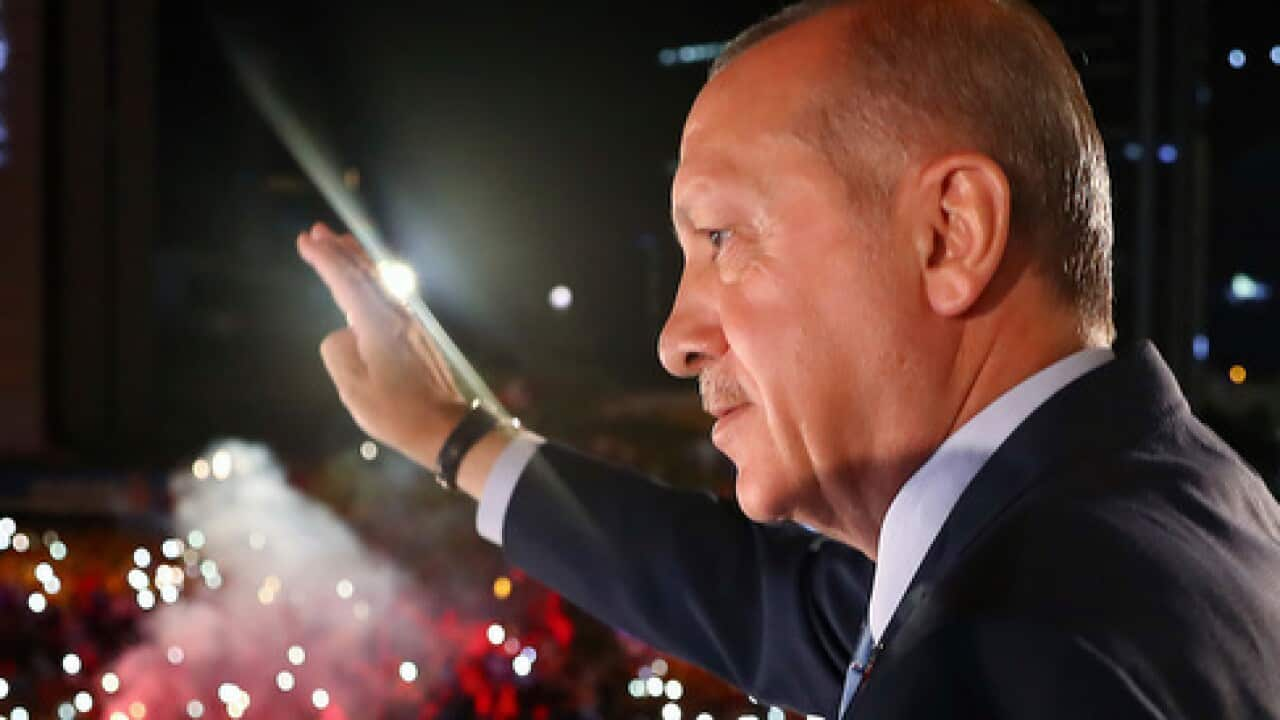A dispute between Turkey and the United States -- which reached new intensity over the detention of an American pastor -- has hammered the lira and also raised questions over the future partnership between Washington and Ankara.
As the lira plunged another seven percent in value, investors fretted over potential economic contagion from Turkey, particularly to European banks.
The Turkish lira had tumbled some 16 percent against the dollar on Friday as US President Donald Trump said he had doubled tariffs on steel and aluminium from Turkey.
"We are together in NATO and then you seek to stab your strategic partner in the back. Can such a thing be accepted?" Erdogan said at a conference in the capital Ankara.
After Erdogan's speech, the lira was trading back at 6.9 to the dollar, a loss of over seven percent on the day, recovering from even sharper losses in earlier Asian trade where it struck a record low of 7.2362 to the greenback.
In its first statement since what was dubbed "Black Friday" in Turkey, the central bank said it was ready to take "all necessary measures" to ensure financial stability, promising to provide banks with "all the liquidity" they need.
The bank also revised reserve requirement ratios for banks, in a move also aimed at staving off any liquidity issues.
But to the dismay of markets, the statement gave no clear promise of rate hikes, which is what most economists and analysts say is needed to ease the crisis.
'Economic siege'
Erdogan indicated he was in no mood to offer concessions to the United States in one of the worst spats between the two NATO allies in years.
Erdogan said Turkey was facing an "economic siege", slamming the currency movements as an "attack against our country".
The Turkish leader has been sanguine over the punitive measures announced by the US, saying that while Turkey's relationship with Washington is at stake it will look for other partners.
Analysts say that while Washington's sanctions against Ankara sparked the immediate crisis, Turkey's economy has been risking trouble for a while due to high inflation and the weak lira.
The central bank has over the last few weeks defied calls from markets for rate hikes to combat these problems, raising fears of interference from Erdogan who has repeatedly called for low interest rates.
German Chancellor Angela Merkel weighed into the crisis, calling for an independent Turkish central bank.
"Nobody ... has an interest in the economic destabilisation of Turkey but of course everything must be done so that, for example, an independent central bank can operate," she said in Berlin.
Erdogan had on Saturday described interest rates as a "tool of exploitation", in remarks that further unnerved markets.
"Investors need to see serious economic measures and not political ones to prevent things getting completely out of control," said Hussein Sayed, chief market strategist at FXTM, saying this had to include an emergency rate hike.
But Erdogan advised Turks not to worry.
"It is not at all like we sank and we are finished. The dynamics of the Turkish economy are solid, strong and sound and will continue to be so."
Erdogan also blasted what he called "economic terror" on social media, vowing that the judiciary had taken necessary measures to punish so-called speculators.
The interior ministry launched an investigation into 346 social media accounts on grounds of "provocative sharings", the state-run Anadolu news agency reported.
American pastor Andrew Brunson has been held since October 2016 on terror and espionage charges and, if convicted, could face a jail term of 35 years. Trump has described his detention as a "total disgrace" and urged Erdogan to free him immediately.
A delegation led by Turkish Deputy Foreign Minister Sedat Onal failed to secure a deal last Wednesday in talks in Washington on a number of issues including Brunson.
Erdogan on Sunday confirmed media reports that Washington gave Onal's delegation a deadline of 6:00 pm last Wednesday for the release of Brunson "otherwise the sanctions will begin".
Agathe Demarais, lead Turkey analyst at the Economist Intelligence Unit, told AFP that "with an overheated and indebted economy, Turkey will require credibly orthodox economic policies, fiscal discipline and central bank independence to reverse the current situation."
"A normalisation of relations with the US could also reduce the amount of legwork that the central bank will have to do to control the economic situation, but this is unlikely to happen at the moment," she said.


